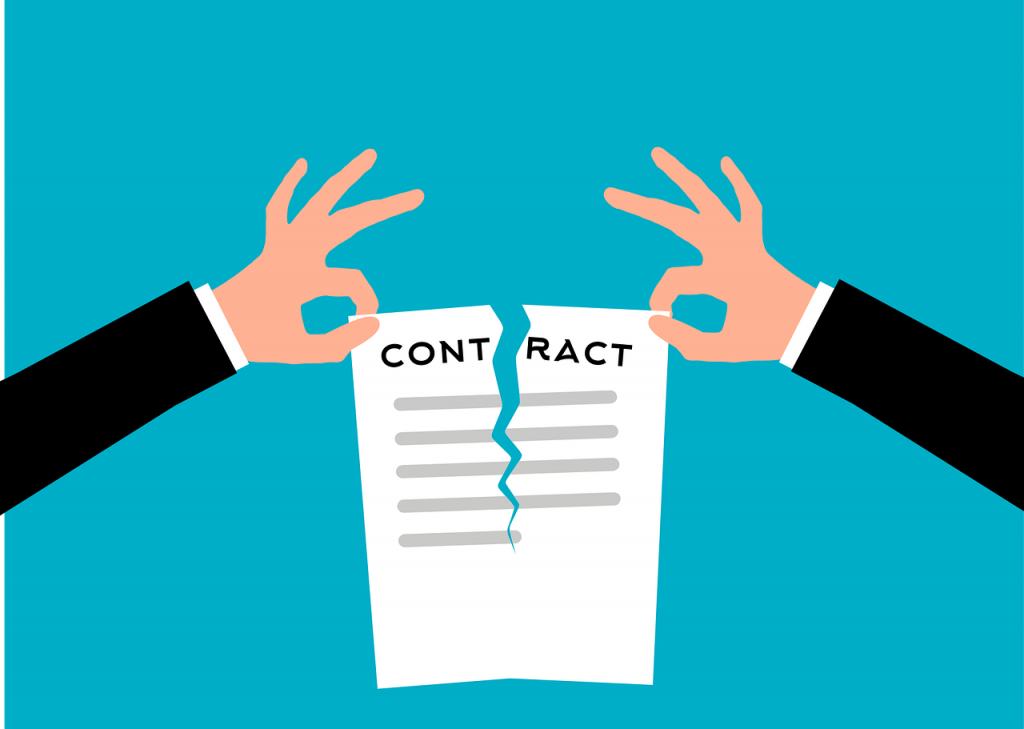Are you facing a situation where you need to make changes to an existing contract? Contract modification can be a complex process, but with the guidance of an experienced attorney, you can navigate through it seamlessly. In this article, we will address common legal concerns surrounding contract modification and provide reassurance and guidance along the way. Whether you need to add or remove clauses, alter terms, or extend the duration of a contract, our goal is to provide you with the necessary information and support to make informed decisions. So, if you’re looking for expert advice, don’t hesitate to reach out to our attorney by calling the phone number listed on our website. Take the next step and seek assistance promptly.
What is a Contract Modification?
Definition of contract modification
A contract modification, also known as an amendment, is a change made to an existing contract. It involves altering the terms and conditions, scope of work, obligations, or pricing of the original agreement. The purpose of a contract modification is to update and adapt the contract to address changing circumstances, ensure clarity, and protect the interests of all parties involved.
Purpose of contract modification
The purpose of a contract modification is to accommodate changes in the business environment and ensure that the contract continues to meet the needs of all parties involved. It allows for adjustments to be made when circumstances change and obligations need to be modified. Contract modifications are crucial for maintaining a mutually beneficial and sustainable contractual relationship.
When is a Contract Modification Needed?
Change in terms and conditions
A contract modification may be needed when there is a change in the terms and conditions originally agreed upon. This can happen due to unforeseen circumstances, updated regulations, or the evolving needs of the parties involved. A modification can help address any discrepancies or limitations in the original contract to ensure fairness and clarity.
Additional or revised obligations
Sometimes, additional or revised obligations may arise during the course of a contract. This could be due to new requirements, changes in project scope, or the need to meet specific deadlines. A contract modification allows both parties to negotiate and agree upon these new obligations, providing a clear framework for implementation.
Pricing adjustments
Another common reason for a contract modification is pricing adjustments. In an ever-changing economic landscape, it is not uncommon for prices to fluctuate. A modification can ensure that the agreed-upon pricing reflects current market conditions, making the contract more realistic and reasonable for both parties.
Updates to the scope of work
As projects progress and new requirements emerge, it may become necessary to update the scope of work outlined in the original contract. Contract modification allows for these updates to be incorporated, helping to ensure that the work remains aligned with the parties’ goals. By adding or removing elements from the scope of work, a modification allows for greater flexibility and adaptability.

Types of Contract Modifications
Amendment
An amendment is one of the most common types of contract modifications. It involves making changes to specific terms, conditions, or clauses within the original contract. Amendments are typically used when the parties want to modify a specific aspect of the original agreement without altering the entire document.
Addendum
An addendum is a supplementary agreement to the original contract. It is used when parties need to add new provisions, terms, or requirements that were not included in the original agreement. Addendums are often used to address new circumstances or unforeseen situations that arise during the course of the contract.
Supplement
A supplement, similar to an addendum, adds additional terms or provisions to the original contract. However, a supplement typically expands upon or clarifies existing provisions rather than introducing entirely new ones. Supplemental modifications are useful when additional details or specifications need to be included to ensure a thorough understanding of the contract.
Termination and replacement
In some cases, a contract may be terminated and replaced with a new agreement through a modification. This type of modification typically occurs when both parties agree that the existing contract is no longer feasible or appropriate. The termination and replacement modification outlines the conditions for ending the original contract and introduces a new agreement to take its place.
Waiver
A waiver is a contract modification that grants one party the right to forego or waive certain contractual rights or obligations. This type of modification may occur when one party is willing to temporarily suspend or modify specific provisions to accommodate the other party’s needs. Waivers can help build goodwill and foster a collaborative relationship between the parties involved.
The Legal Process of Contract Modification
Reviewing the original contract
The process of contract modification begins with a careful review of the original contract. This step is essential to understand the existing terms, conditions, and obligations. It ensures that any proposed modifications align with the original intent of the agreement and do not contradict or undermine its purpose.
Identifying the need for modification
Once the original contract has been reviewed, the next step is to identify the need for modification. This involves assessing any changes in circumstances, new requirements, or issues that have arisen since the contract’s inception. By identifying the specific areas that require modification, the parties can develop a clear understanding of what needs to be addressed.
Negotiating the modification
Negotiation is a crucial step in the contract modification process. The parties involved must engage in open and transparent discussions to reach a mutually acceptable agreement. Each party’s interests and objectives should be considered to ensure a fair and balanced modification that benefits all involved.
Drafting the modification document
After reaching an agreement through negotiation, the modification document should be drafted. This document clearly outlines the changes being made to the original contract and includes all relevant details, such as the revised terms, conditions, or obligations. It is important to ensure that the modification document is comprehensive and accurately reflects the intent of the parties.
Obtaining signatures and approvals
Once the modification document has been drafted, it must be signed and approved by all parties involved. This step ensures that the modification is legally binding and enforceable. It is essential to obtain the necessary signatures and approvals in a timely manner to avoid any potential disputes or misunderstandings.
Importance of Contract Modifications
Ensuring clarity and accuracy
Contract modifications play a vital role in ensuring clarity and accuracy in contractual relationships. As circumstances change and new obligations arise, a well-drafted modification helps to update the contract to reflect these changes. By incorporating the necessary modifications, both parties can have a clear understanding of their rights, responsibilities, and expectations.
Addressing changing circumstances
Contracts are often entered into with the expectation that circumstances will remain static throughout their duration. However, this is rarely the case in the real world. Contract modifications provide a mechanism to address and adapt to changing circumstances. Whether it’s adjusting pricing to reflect market conditions or modifying the scope of work to accommodate unforeseen developments, contract modifications help keep agreements relevant and feasible.
Protecting the interests of all parties
Contract modifications are essential for protecting the interests of all parties involved. By allowing for changes to be made to the original contract, modifications ensure that both parties have a fair and equitable arrangement. They provide an opportunity to address any imbalances or flaws in the original agreement, fostering a relationship built on trust and mutual benefit.
Preventing misunderstandings and disputes
One of the key benefits of contract modifications is their ability to prevent misunderstandings and disputes. By clearly outlining the changes being made to the contract, modifications leave little room for ambiguity or confusion. This clarity helps to minimize the risk of disagreements and potential legal disputes, promoting smoother and more efficient business relationships.
Common Mistakes to Avoid
Not documenting the modification properly
One common mistake to avoid is failing to document the modification properly. It is crucial to ensure that all modifications are clearly and accurately documented in writing. Failing to do so can lead to misunderstandings, disputes, and potential legal issues in the future. Proper documentation helps to establish the parties’ intentions and provides a clear record of the modified terms.
Failing to obtain all necessary approvals
Obtaining the necessary approvals is another crucial step that should not be overlooked. All parties involved in the contract modification must provide their consent and signature for the modification to be valid. Failing to obtain these approvals can render the modification unenforceable and leave the parties without the intended changes.
Neglecting to communicate the modification
Effective communication is essential when it comes to contract modifications. It is important to inform all relevant stakeholders about the modification and its implications. Failure to communicate the modification can lead to misunderstandings and confusion, undermining the purpose of the modification itself. Keeping all parties well-informed helps ensure a smooth transition and continued collaboration.
Neglecting to revisit other contract terms
When making a contract modification, it is crucial to revisit and consider the implications on other contract terms. Changes made in one section of the contract may have ripple effects throughout the agreement. Failing to review and revise other relevant clauses or provisions can lead to inconsistencies or contradictions within the contract. A comprehensive approach to modification includes a thorough review of the entire contract to ensure consistency and coherence.

Legal Considerations
Validity of the modification
One of the primary legal considerations is the validity of the contract modification. For a modification to be valid, it must meet certain legal requirements. These requirements might include the consent of all parties, consideration (something of value exchanged), and adherence to any applicable laws or regulations. It is crucial to ensure that the modification meets these criteria to avoid any challenges to its validity.
Enforceability of the modification
In addition to validity, the enforceability of the modification is essential. A modification will only be enforceable if it meets all legal requirements and is accepted by all parties involved. It is important to carefully navigate the legal landscape and ensure that the modification is in compliance with applicable laws and regulations to maximize its enforceability.
Impact on other contractual provisions
When modifying a contract, it is crucial to consider the impact on other contractual provisions. Changes made in one section of the contract may have unintended consequences elsewhere. It is important to assess how the modification may affect other terms, conditions, or obligations in the contract to avoid any conflicts or inconsistencies. Legal expertise can help navigate these complexities and ensure that all modifications are in harmony with the overall agreement.
Potential Challenges and Risks
Breach of contract claims
One potential challenge that may arise from contract modifications is the risk of breach of contract claims. When modifications are not clearly documented or fail to meet legal requirements, they can be contested by one or more parties. Disagreements over the modified terms and conditions can lead to allegations of breach of contract, potentially resulting in legal disputes. To minimize this risk, it is crucial to ensure the proper documentation and adherence to all legal requirements.
Disputes over modification terms
Disputes may also arise specifically related to the terms of the contract modification. One party may interpret the modifications differently from another, leading to disagreements and potential conflicts. To mitigate this risk, it is important to have a clear and detailed modification document that leaves little room for ambiguity. Open and transparent communication during the negotiation process can also help prevent misunderstandings and disputes.
Non-compliance with legal requirements
Failing to comply with all legal requirements when modifying a contract can create significant risks. If a modification does not meet legal standards, it may not be valid or enforceable. This can leave parties exposed to potential legal consequences and challenges. To navigate this risk, it is advisable to consult with legal professionals who can guide and ensure compliance with all relevant laws and regulations.

Seeking Legal Assistance
Role of an attorney in contract modification
When it comes to contract modification, the role of an attorney is invaluable. An attorney can provide legal expertise and guidance throughout the entire process. They can help review the original contract, identify the need for modifications, negotiate the terms, and draft the modification document. An attorney can also ensure compliance with all legal requirements, minimizing the risk of disputes and legal challenges.
Benefits of consulting an attorney
Consulting an attorney when engaging in contract modification offers several benefits. Attorneys have a deep understanding of contract law and can help navigate the legal complexities involved in modifying a contract. They can provide valuable advice, assess the risks, and address any potential legal concerns. An attorney’s guidance can help protect your interests and ensure that the contract modification is thorough, enforceable, and legally sound.
Finding the right attorney for assistance
Finding the right attorney for assistance with contract modification is crucial. Look for attorneys who specialize in contract law and have experience in contract modification. Seek out recommendations from trusted sources, conduct thorough research, and review attorney profiles and testimonials. Contacting attorney(s) listed on the website for further assistance and consultation will ensure you find the right legal professional to help with your specific contract modification needs.
Conclusion
Contract modification is a crucial process that allows parties to adapt, update, and enhance the terms of an existing contract. By addressing changing circumstances, ensuring clarity, and protecting the interests of all parties involved, contract modifications contribute to successful contract management. However, it is important to follow the legal process diligently, avoid common mistakes, and seek legal assistance when needed. A proactive approach to contract modification can help foster strong and sustainable contractual relationships. So, if you find yourself in need of modifying a contract, don’t hesitate to consult with an attorney to navigate the process effectively and ensure the best possible outcome.
























